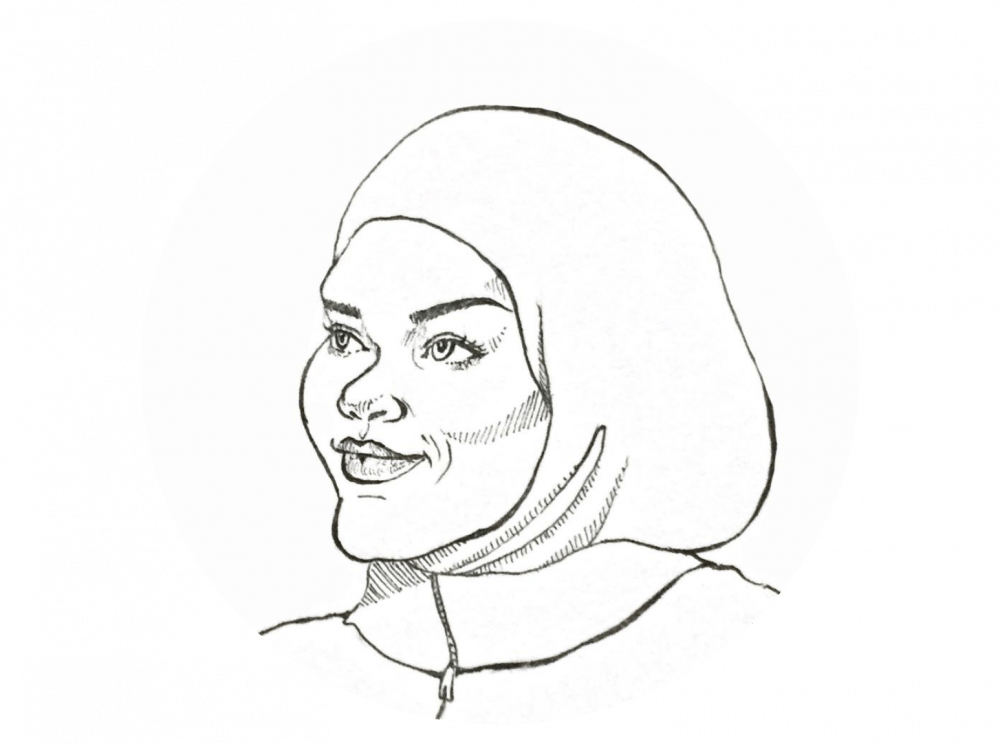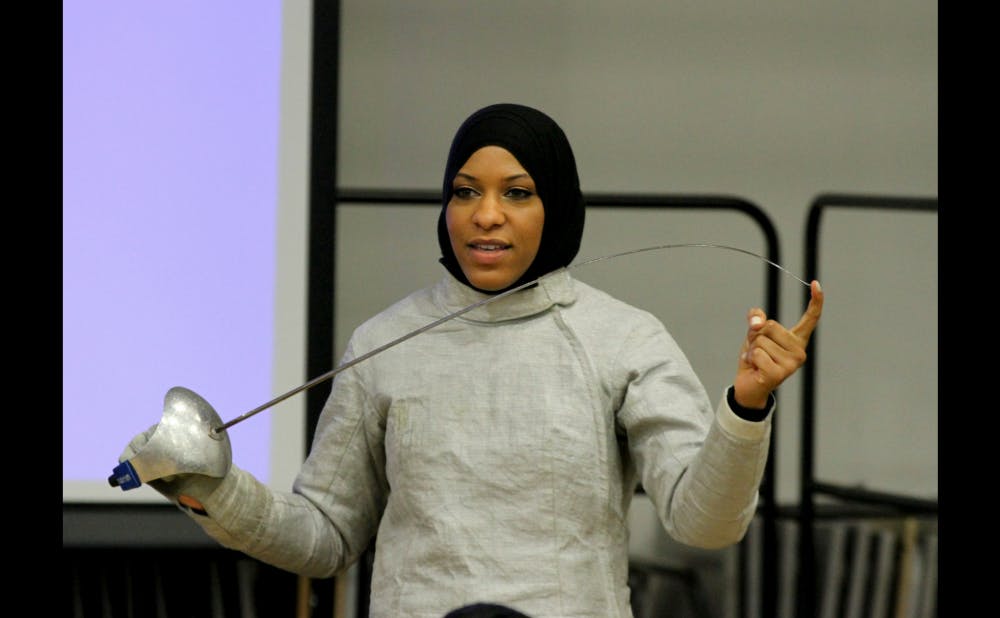Ibtihaj Muhammad, Trinity '07 and Olympic Bronze medalist, described how her future and identity were shaped during her time at Duke in her new book, "Proud: My Fight for an Unlikely American Dream."
The book details her journey to Duke and her time on campus, as well as the reasons she ultimately decided to leave the fencing team her senior year. Despite being a world-class athlete and strong student, Muhammad's acceptance to Duke was met with condescension from her peers, she wrote, adding that her classmates remarked that she only got into Duke because of her race.
Muhammad noted that she chose Duke because it offered her a better financial package than New York University or Columbia University, though she had doubts about moving to the South.
"I wasn't sold on going so far away from home for college—living in New Jersey, I just assumed I'd land somewhere in the Northeast—but I couldn't turn down an amazing opportunity even if it did mean going to school below the Mason-Dixon line, a line I was a little bit hesitant to cross as an African-American hijabi," she described. "I didn't know what kind of welcome I'd receive in North Carolina, but I figured on Duke's campus I'd be in a safe environment where I would surely be able to find my 'people.'"
At Duke, Muhammad excelled as an athlete—she was a three-time All-American and Junior Olympic National Champion. Despite her success in fencing, she wrote about never feeling fully accepted by the Duke fencing team, noting that "most of the other women on the team didn't seem interested in getting to know" her.
She added that she realized that she would "never have the family feeling at Duke" as she had on her high school team or the Peter Westbrook Foundation, where she previously trained.
Describing Duke as "overwhelmingly white," she also chronicled experiences where she was put in uncomfortable situations by her teammates, as she was one of two Black fencers.
"If the only problems on the fencing team were about certain girls not wanting to be my friends, I wouldn't have minded that much, but the real issues at play were laced with racial undertones," she said. "My friend Josh and I were the only Black fencers on Duke's team, and we both were on the receiving end of endless numbers of 'harmless jokes' and offhand comments that permeated our team culture."
Recalling being asked whether she and her friend like fried chicken and watermelon for dinner, Muhammad even lambasted her former teammates for their lack of originality with their racism.
She described feeling "like an outsider." Along with her friend, Muhammad eventually left the team her senior year because of the micro-aggressions, as well as the struggle of maintaining the balance of athletics, school work and a social life.
"When I thought about fencing at Duke, my stomach clenched, and a wave of dread passed over me. I curled my toes in the sand. I closed my eyes and tried to imagine my life at Duke without fencing," she wrote. "I had my own dreams to pursue, and making Duke's fencing team a more inclusive space wasn't one of them."
Art Chase, associate director of athletics/external affairs, responded in an email to The Chronicle to claims she made in the book regarding the fencing team's treatment of her, adding that Duke Athletics has "strengthened [its] culture of inclusiveness" since Muhammad was a student.
"Duke University Athletics, comprised of nearly 700 student-athletes and more than 250 staff members from a wide variety of backgrounds, strives for inclusiveness," Chase wrote in an email. "Certainly, we constantly evaluate that critically important aspect of our department, among others, in order to provide the best possible experience for each and every one of our student-athletes."
Chase added that the department "could not be more proud" of Muhammad for her success at Duke and post-graduation and called her an "inspiration."
What Muhammad didn't necessarily find in the fencing team, she found in the Muslim Students Association—a community.
"Even though the MSA was a group with way more men than women and still had zero other hijabis in the organization, I decided to officially join the MSA and get from the group what I could," Muhammad wrote. "It wasn't about what other people could bring to my life, it was what I wanted for myself. And what I wanted was a Muslim community that I could pray with and also have fun with."
Despite her struggle with acceptance, community and identity, she wrote that she found pride and conviction at the end of her Duke journey.
"By the time I hit graduated, I felt confident and comfortable with who I was, as a Black American woman and as a Muslim American woman," Muhammad wrote. "All told, I felt like Duke had given me an excellent education in mind, body and spirit. I graduated knowing so much more about myself and my history."

Get The Chronicle straight to your inbox
Signup for our weekly newsletter. Cancel at any time.
Class of 2019
Editor-in-chief 2017-18,
Local and national news department head 2016-17
Born in Hyderabad, India, Likhitha Butchireddygari moved to Baltimore at a young age. She is pursuing a Program II major entitled "Digital Democracy and Data" about the future of the American democracy.

